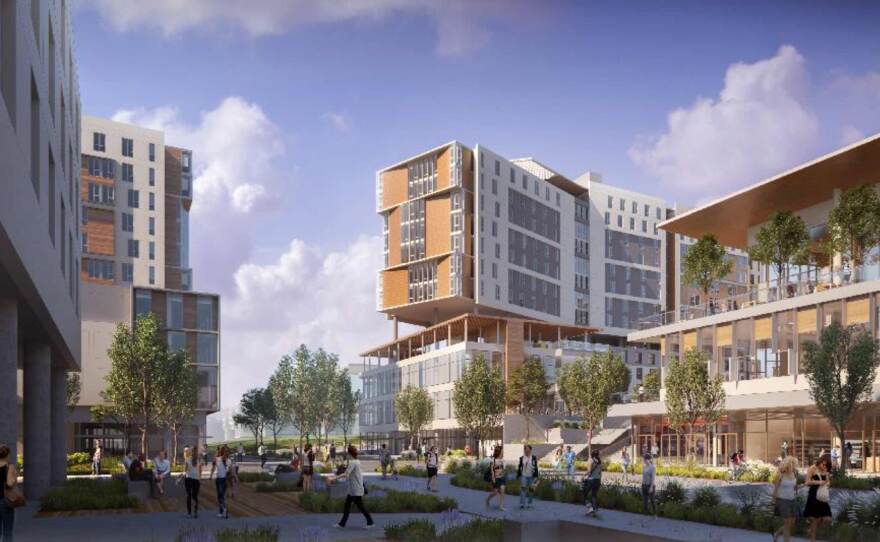The San Diego City Council on Monday tentatively approved an amendment to the city's municipal code to add a sixth development zone category aimed at spurring high-density housing developments near public transit and employment areas.
The council's unanimous vote will add "mixed-use" to the municipal code as the sixth zoning category, the other five being open space, agricultural, residential, commercial and industrial. City officials proposed adding a mixed-use zoning category after receiving multiple proposals to build such developments, which currently require special discretionary permitting that takes longer to process and costs more money.
Mixed-use zoning will be available for developments that are primarily residential or employment-based. Secondary uses for mixed-use developments include residential space, employment space, offices and retail units.
RELATED: Mission Valley’s Population Could Triple Under New Growth Plan
Mixed-use developments that face the public right-of-way or a private drive or plaza will also be required to include building-front additions like bay windows, balconies and awnings.
City Councilwoman Vivian Moreno said making mixed-use development easier is a boon for the city, allowing for the creation of "walkable communities that provide residents access to commercial uses near their homes such as grocery stores, coffee shops and restaurants."
"It's refreshing to see this come forward after years of project applicants being required to process discretionary permits with additional cost, time and money," she said.
For developers seeking to re-zone their current projects into the mixed-use category, city staff said the wait time to process a re-zone is roughly 12-18 months, based in part on the speed with which developers return required paperwork to the city. The re-zone application also costs a developer roughly $12,000, a fee that could be avoided under the amended code.
Moreno and the mayor's office agreed to consider future incentives for developers such as an expedited re-zoning process.
According to the city, mixed-use developments are intended to be located in so-called transit priority areas, which the city defines as sitting within a half-mile of a current transit stop or one funded and scheduled to be completed within five years.
The council's Land Use and Housing Committee unanimously approved the amendment in May, arguing that mixed-use housing is the future of urban housing development. City Councilman Scott Sherman, who sits on the committee, said the amendment is a free market solution to increasing development.
"I've always been a proponent of letting the market decide what needs to be developed because that usually seems to work out best when people know exactly what the market wants, they can develop towards that," he said. "By changing these zones ... that can really allow the market that flexibility that it needs to make more development happen."
The amendment ordinance will require a second council vote to formally take effect, per the city charter. The council did not elaborate on when that second vote will be held, but it is likely to be after the council returns from its summer recess Sept. 9.






